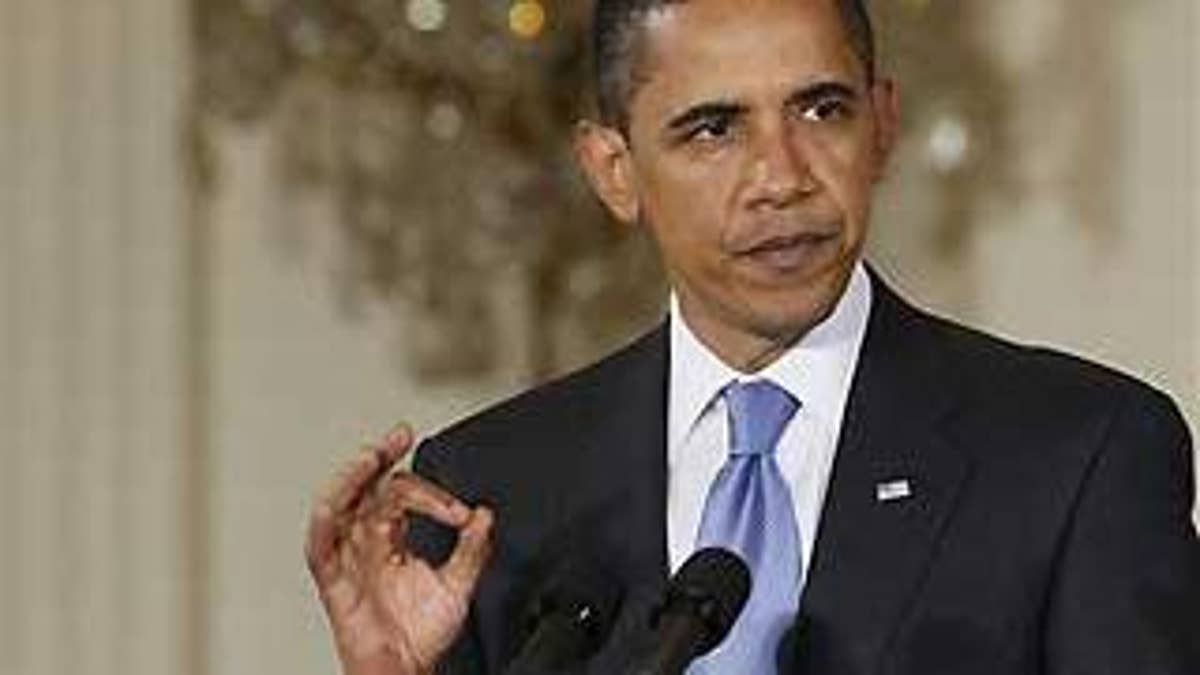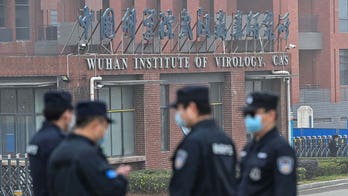
President Obama is trying to keep Democratic unrest from derailing his plans to close the Guantanamo Bay detention camp after the Senate voted overwhelmingly Wednesday to yank money for shuttering the prison.
The president is delivering a speech Thursday meant to shed light on how the administration expects to transfer 240 detainees off the island by January 2010.
The address appears overdue, considering the resistance and mixed messages coming from top-ranking Democrats over the issue on Capitol Hill.
By a vote of 90-6, the Senate approved an amendment to a war funding bill Wednesday that not only blocks supplemental funds from being used to close Guantanamo and move detainees to U.S. soil, but also orders that no funds already in U.S. coffers be redirected toward that purpose.
The Senate also overwhelmingly approved an amendment offered by Senate Minority Leader Mitch McConnell that requires a classified threat assessment of each detainee at Guantanamo. It was a severe blow to the impassioned opposition of Sen. Dick Durbin, (D-Ill.), who argued that the release of that sensitive information might jeopardize the prosecutions of the detainees.
Sen. Dan Inouye, D-Hawaii, chairman of the Senate Appropriations Committee, said the vote to strip the $80 million Obama had wanted should not be seen as a rebuke to the administration but a "wake up call."
He said it is "up to the administration to fashion a plan that can win the support of the American people and members of Congress."
The amendment Wednesday also precludes the upgrade of any U.S. facility or the building of any new facility to house detainees. The supplemental bill on which senators are voting lasts until the new budget year, which starts on Oct 1.
The amendments complicating Guantanamo closure don't stop there. This afternoon, the Senate is expected to vote on an amendment from Senate Minority Leader Mitch McConnell, R-Ky., that would mandate a U.S. threat assessment for every single detainee at Gitmo.
Republicans used Wednesday's vote to build momentum against the prison's closure. GOP senators held a press conference immediately after the vote to warn that U.S. prisons are not equipped to hold the dangerous detainees now in Cuba. Plus they said the Guantanamo facility is best for the detainees themselves, arguing that it provides superior health care and special accommodations to practice Islam.
"If you were to close Guantanamo and move these people somewhere in the United States, you could not duplicate what is available there," said Sen. Mike Johanns, R-Neb. "I would suggest to you that they would receive worse treatment than they are receiving at Guantanamo."
Former Vice President Dick Cheney is also giving a dueling speech on national security Thursday at the American Enterprise Institute, bolstered in his escalating criticism of the administration by the Senate's Guantanamo vote.
Such developments make assurances from Obama that his plan is the best way to go all the more important.
White House Press Secretary Robert Gibbs said Tuesday that Obama will detail a "hefty part" of his plan for the detainees in his speech on Thursday.
"We agree with Congress that before resources, that they should receive a more detailed plan," Gibbs said.
But in a signal from the administration that patience could be wearing thin, Michele Flournoy, Obama's new Pentagon policy chief, said Wednesday that members of Congress must rethink their opposition to accepting these detainees into the United States.
Flournoy said it is unrealistic to think that no detainees will come to the United States, and that the U.S. cannot ask allies to take detainees while refusing to take on the same burden.
Without singling anyone out, Flournoy said lawmakers need to think more "strategically."
Democrats had been hammered by Republicans, many of whom don't want Guantanamo shuttered at all, over the possibility that detainees could be sent to live in the United States -- in prisons or otherwise.
Attorney General Eric Holder said Wednesday that he thinks the prison can still close by January 2010. However, it's unclear what Democrats would be okay with approving in a closure plan. The party has been a state of disarray over the issue recently.
Senate Majority Leader Harry Reid, D-Nev., nearly had it both ways on Tuesday.
He first said, emphatically, that Democrats "will never allow terrorists to be released in the United States," and then said Democrats also don't want detainees to be transferred to U.S. prisons.
The suggestion was that the United States should not taken any prisoners under any circumstances, raising questions about where the Democratic leadership wants detainees to go should the closure plan be executed.
But Reid's spokesman walked back his statement, saying the leader went too far and would actually be open to putting them in American prisons, if the administration puts forward a plan to do so.
The discord between Reid's own words was emblematic of the clash among Democrats on Capitol Hill.
Sen. Jim Webb, D-Va, said on a Sunday talk show that he opposes the release into the United States of 17 Chinese Uighurs who were captured in Afghanistan after Sept. 11, 2001. The prisoners, de-listed as enemy combatants by a federal court that deemed them not a danger to the U.S., are eligible for release.
The administration is considering releasing them in Northern Virginia, something Webb vehemently opposes. Webb's language left the door open to an even broader opposition to any Gitmo detainees being released in the United States.
Sens. Jon Tester and Max Baucus, both Montana Democrats, have said emphatically that no detainees will be brought to their state. The same goes for Sen. Ben Nelson, D-Neb.
FBI Director Robert Mueller told the House Judiciary Committee Wednesday that he's concerned some detainees could support terrorism if sent to the United States, either through financial support to terror networks, radicalization of others or taking part in attacks.
Still, Inouye left the door open to bringing the prisoners to the U.S. eventually, refusing to rule out any opportunity to incarcerate detainees on U.S. soil.
Reid's No. 2, Dick Durbin of Illinois, told FOX News that while Democrats were very concerned about taking a vote defending moving prisoners to the United States, he is not opposed to it, adding that American prison facilities can hold these prisoners safely.
Durbin took on Minority Leader Mitch McConnell on the Senate floor Wednesday, saying that while it's true no prisoner has ever escaped from the Guantanamo, "it's also true that no terrorists have ever escaped from U.S. supermax prisons."
He was one of the six lawmakers to vote against the amendment Wednesday.
Meanwhile, Republicans are not exactly unified on how to move forward, other than to say no detainees should be moved to the U.S. under any circumstances.
Some Republicans, like McConnell and Sen. Jim Inhofe, R-Okla., say they want to keep Gitmo open, period.
"We're going to do everything we can to keep it open. It will stay open because there's no place else to put these guys," Inhofe told FOX News.
They found some window of support for their position when U.S. District Judge John Bates ruled Wednesday that the United States can continue to hold some prisoners in military detention indefinitely without any charges.
Others are emphatic that it should be closed.
FOX News' Trish Turner and The Associated Press contributed to this report.




